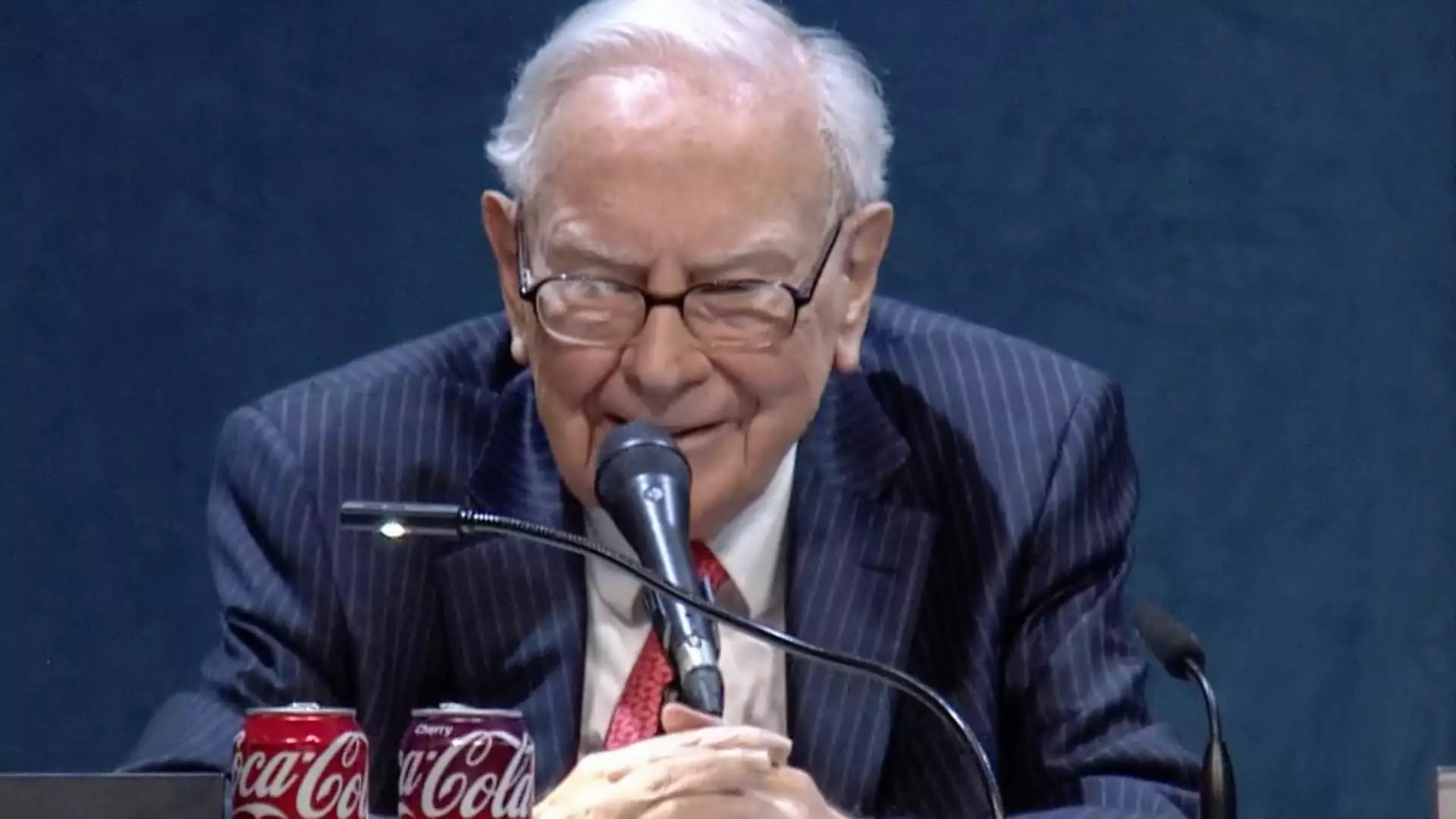Warren Buffett’s Berkshire Hathaway has always managed to maintain an air of infallibility in the eyes of investors, but recent first-quarter results bring a stark reality check. Released data shows operating earnings plummeting by 14% from the previous year, totaling a somewhat disheartening $9.64 billion. This is not just a minor fluctuation; it signifies worrisome undercurrents that could have lasting consequences. In an era where economic resilience and adaptive business strategies are paramount, these earnings reflect not just a simple drop but an alarming sign of vulnerabilities within its diversified portfolio.
The operating earnings per Class B share fell to $4.47, down from $5.20, marking a significant decline that starkly contrasts the expected consensus of $4.72. The unsettling reality is that investors must grapple with a conglomerate not just navigating turbulent waters, but seemingly taking on water. A 48.6% plunge in insurance-underwriting profit drives this narrative, reflecting broader challenges in operational effectiveness and market dynamics. With California wildfires costing the company approximately $1.1 billion, one must ask—how adept is Buffett’s team at predicting and mitigating such risks?
Geopolitical Factors and Tariff Woes
Adding fuel to this financial fire is the omnipresent risk of tariffs and geopolitical uncertainties that hang over global markets like a dark cloud. Berkshire has openly acknowledged that tariffs could further erode profitability, yet the inability to predict their potential impact poses a significant concern. It indicates an overarching unpredictability in the macroeconomic landscape that investors often underestimate. The company’s recent suggestion that it is impossible to firmly gauge how these changes will ripple through their business reflects a grim reality—high-stakes commerce is precariously positioned on a shifting foundation of international relations.
With President Donald Trump’s administration pushing through aggressive tariff policies, companies like Berkshire, with diverse operations including insurance and rail transport, are bound to feel the brunt of fluctuating costs and unknown consumer demand. The wisdom behind maintaining operations in such an uncertain environment must be questioned, considering the direct impact that geopolitical discord can have on bottom lines across various segments of the conglomerate.
Currency Fluctuations: A Double-Edged Sword
Adding to the complexity is the dollar’s decline, which led to a sizeable $713 million foreign exchange loss for the company this quarter. In stark contrast, Berkshire benefited from a forex gain of $597 million this time last year. The staggering difference, a swing of over a billion dollars, showcases the volatile nature of foreign exchange markets. The exploratory assertion from Berkshire that they are unable to anticipate changes in customer demand and supply chain efficiency, as a result of international policies, raises a significant red flag.
The effects of currency devaluation extend beyond simple profit-loss statements; they can erode international competitiveness and jeopardize future expansion strategies, particularly in markets where the dollar’s value remains critical. This dilemma raises a compelling question about the prudence of holding onto such vast amounts of cash—over $347 billion—during periods of economic vulnerability.
Buffett’s Investment Philosophy Under Scrutiny
One cannot overlook Buffett’s insistence that investors should look beyond the noise of quarterly fluctuations. However, this approach is becoming increasingly challenging to reconcile with the stark numbers emerging from the latest report. To maintain such a cash hoard without using it strategically in a plunging market begs the question: is Buffett losing his touch or are we merely witnessing a market correction?
Despite being hailed as the “Oracle of Omaha,” Buffett’s recent inactivity in deploying cash, coupled with a net selling position for ten consecutive quarters, raises suspicions regarding his unwavering confidence. If Berkshire, a pillar of American capitalism, continues on this trajectory with insufficient proactive measures, it risks becoming an emblematic case of corporate complacency amidst adapting global economic realities. The current scenario paints a picture not just of challenges but of missed opportunities—one can only hope that Buffett and his team navigate these turbulent waters with the sagacity that has defined their legacy.

